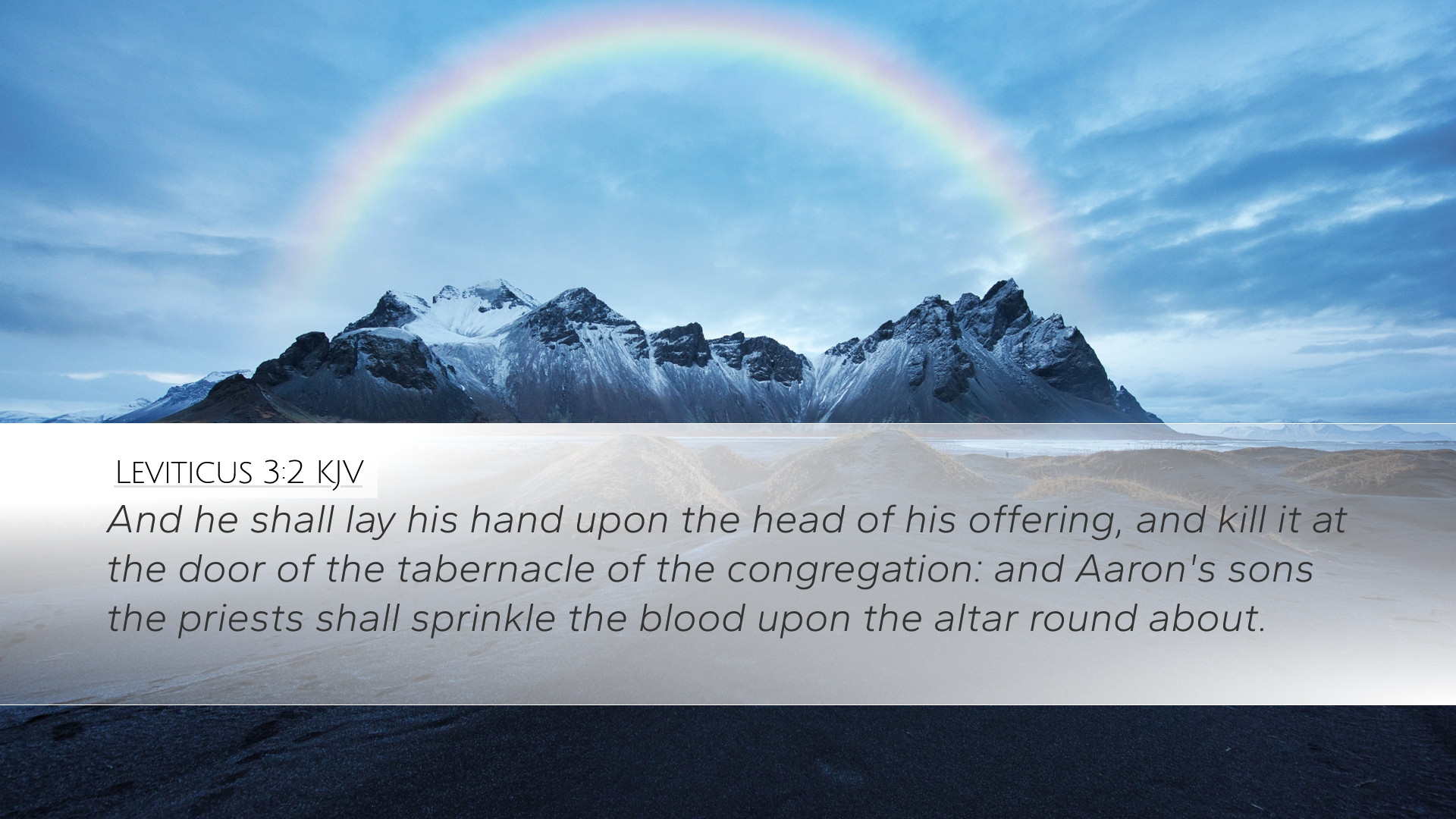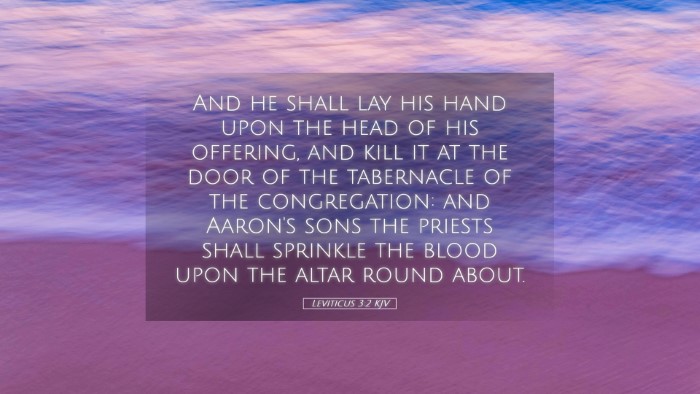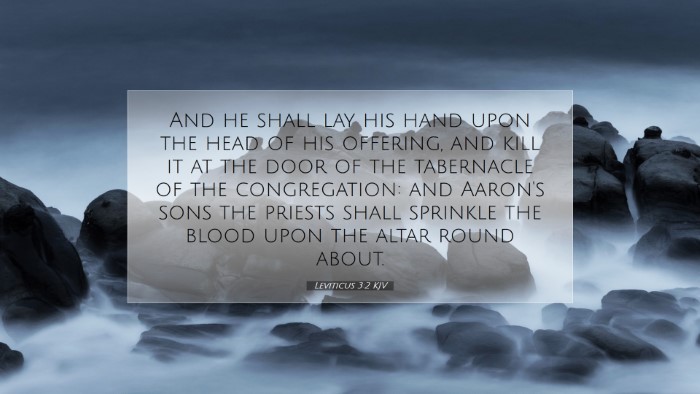Commentary on Leviticus 3:2
Leviticus 3:2 states:
"And he shall lay his hand upon the head of his offering, and kill it at the door of the tabernacle of the congregation: and Aaron's sons the priests shall sprinkle the blood upon the altar round about." (KJV)
Introduction
The third chapter of Leviticus is pivotal in understanding the significance of peace offerings in the Mosaic law. The act of laying hands on the offering signifies identification with the sacrifice, a theme rich in theological meaning for pastors, students, and theologians alike.
The Act of Laying Hands
Matthew Henry notes that the laying of hands on the head of the offering represents a transfer of sin and guilt from the individual to the animal, symbolizing a person's identification with the sacrifice. This act is essential as it underscores the personal involvement in the process of atonement and the necessity of a substitute for the individual's sins.
Albert Barnes elaborates on this by stating that laying hands not only connects the individual to the offering but also shows the gravity of sin. It serves as a visible sign of faith, where the offerer acknowledges their unholiness and seeks reconciliation with God through this appointed means.
The Role of the Priest
The priests, particularly Aaron's sons, hold a crucial role in this sacrificial system. Adam Clarke highlights the importance of the priestly office as mediators between God and the people. The task of sprinkling the blood on the altar indicates the seriousness of the crime of sin and the necessity of atonement through bloodshed; it is a foreshadowing of the coming sacrifice of Christ.
This act fulfills the need for divine justice while simultaneously illustrating God's desire for peace and communion with His people, which is essential in understanding the overall sacrificial system laid out in Leviticus.
Symbolism of the Offering
In the context of Leviticus, the specifics of the offering reveal deeper truths:
- Peace Offering: The peace offering signifies a meal with God, reflecting the importance of fellowship and communion (Henry). It represents not only propitiation for sin but also a celebration of divine grace.
- Animal Selection: The choice of an unblemished animal symbolizes purity and perfection, accentuating the holiness required for approaching God (Barnes).
- Blood Sprinkling: This act represents life and serves to sanctify the altar, reinforcing the principle that without the shedding of blood, there is no forgiveness of sins (Clarke).
Practical Applications
The profound theological implications of Leviticus 3:2 yield significant practical lessons for modern readers, including:
- The Importance of Sacrifice: Just as the Israelites were called to bring offerings, Christians are reminded of the ultimate sacrifice in Jesus, who became our peace offering (Henry).
- Personal Responsibility: The act of laying hands emphasizes personal accountability before God; individuals must recognize their need for atonement (Barnes).
- Community and Worship: The communal aspect of the peace offering serves to encourage fellowship within the body of Christ, reinforcing the notion of living in harmony with God and fellow believers (Clarke).
Theological Significance of Blood
The mention of blood and its application carries significant weight throughout Scripture. According to Matthew Henry, the blood of the sacrifice symbolizes life, and its sprinkling at the altar illustrates the principle of substitutionary atonement. This theme is vividly seen in the New Testament, where Christ's blood is portrayed as the ultimate offering that brings perfect peace between God and humanity.
Conclusion
Leviticus 3:2 serves as a microcosm of the larger themes of sacrifice, atonement, and reconciliation in the Bible. The insights gleaned from public domain commentaries by Matthew Henry, Albert Barnes, and Adam Clarke are invaluable for pastors, students, theologians, and biblical scholars. They remind us not only of the significance of offerings in the Old Testament but also of their fulfillment in the sacrifice of Christ. This chapter enjoins believers to recognize our standing before a holy God and the grace provided through Jesus as the ultimate peace offering.


